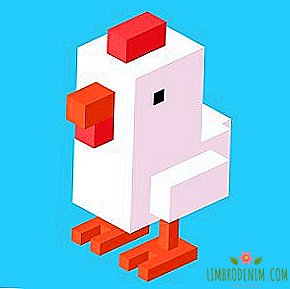Film critic Inna Kushnareva about favorite books
IN BACKGROUND "BOOK SHELF" we ask journalists, writers, scholars, curators, and anyone else not about their literary preferences and publications, which occupy an important place in their bookcase. Today a film critic, member of the editorial board of Logos magazine and translator Inna Kushnareva shares her stories about favorite books.

My father taught me the habit of reading. He was a bookworm, and even tried to write himself, although this was not related to his professional activities. I learned to read, however, by today's standards, it is not too early - at six years old. But almost immediately I read the entire collected works of Arkady Gaidar, which was at home. This is the favorite author of my childhood. Relatively early I read Dostoevsky, at the age of ten, and immediately the Karamazov Brothers. The beauty of the book education of the late Soviet child is that if there was no access to the book deficit, the books got into the house by chance, what was bought was bought, there was no system. But that is why a strong affective relationship was established with books. I, for example, had only the second volume of "Les Miserables", and I read it to the holes, but the first one was never reached.
From the age of twelve I began to collect the home library myself, scour the bookstores (I still remember that Monday was a day off in bookstores, a day completely lost for me), to stand in queues. Again, the purchases were random: I remember how pleased I was with the acquisition of the Art and Revolution Block’s collection of articles — in general, a rather strange reading for a girl of fourteen.
Two libraries played a very important role in my life, from the point of view of the profession, perhaps even more important than the university. Near the house was the Moscow Regional Scientific Library. Krupskaya and I skipped school in high school and sat all day in her reading room — there were many books on literary criticism that, in fact, helped me enter the university from the most ordinary school. And then there was the Library of Foreign Literature and its remarkable principle of openness - you could just come into it from the street and use both the funds and what was publicly available. To walk into it, not having, for example, no academic binding. And there was also the French Cultural Center and its library, and without it my professional interests would not have developed at all. There was French philosophy, an excellent selection of books about the cinema and the magazine Cahiers du Cinéma.
Today it turns out that in foreign languages, mainly in English, I read more than in Russian. This is partly due to professional interests (and the fact that someone else’s translation is always read by the editor’s gaze does not work out). On the other hand, I have some kind of internal prejudice against fiction in translation - this is a substitution, even if it is a very good translation. I read in approximately the same proportion: at the same time several books are non-fiction and one book of a novel is necessarily parallel. I love specialized review publications about books. Favorite - London Review of Books.
The paper book today is increasingly beginning to be felt as a beautiful aesthetic object. I like to order paper books, especially in hardcover, in a good edition. Although the relationship between what is read in electronic form and what is on paper is not always unambiguous. It is clear that the "difficult" books to which you often turn should be on paper: well, almost all of Frederick Jamison I have in paper form. But, for example, the late Henry James was very hard on paper on the original — these were his huge paragraphs that were frightening, and I read him easily in Kindle. The screen makes you focus, read in one gulp, the book creates a pleasant feeling of absent-mindedness - and this is also important.

Yury Tynyanov
"Pushkin"
When the movie “The Star of Enchanting Happiness” came out, I was terribly fascinated by the topic of the Decembrists, I read everything I could find, and that was when I came across Tynianov. It seemed surprising that one could write about school classics so easily, with a deafening, dendist intonation and so strangely (I didn’t know the words “modernism” at the time), with a very modern psychologism. Kühl somehow did not go with me. “Death of Wazir-Mukhtar” I love, but it is rather gloomy and more artificial, which is called in English overwrought. And Pushkin, in my opinion, is perfect. I still love very much the amazing work of Tynianov with the Russian language, the French vaccination in conjunction with the archaisms, all these "empty houses", "ephemers", "nonsense" and so on.
Slava Zizek
"The sublime object of ideology"
The first book of Zizek, published in Russian, and for me also his first book. I still have this specimen preserved, all exhausted, with a mass of marks. In 1999, this book is absolutely shocked. Not that I knew anything about Lacan. I even tried to read it, but I didn’t really understand it. And suddenly the picture began to take shape. In addition, it was also a completely new then approach to cinema and culture in general - the decisive application of "high" philosophical concepts to cinema or, conversely, the application of cinema to philosophy. I immediately ordered another collection about Hitchcock and a book about Kieslowski "The Fright of Real Tears", which few people remember now. I still read Zizek, despite the fact that the fashion for him has passed, and everything seems to have swallowed them. But now it can be read again not as an object of fashion. And the Sublime Object, in my opinion, remains the book with which Zizek should begin to read to those who are familiar with it only by hearsay.
Julio Cortazar
"Game in the classics"
A very important author for a certain generation and social layer - he taught a cultural or bohemian way of life: how to communicate, what to listen to, what to read, what pictures to watch. You read it and practically go through the list: you get records from Schoenberg and Berg, you look for albums by Zao Vuky and Vieira da Silva (they were in the French Cultural Center). It was Kortasar who brought me to another great love - Lawrence Durrell and his Alexandria Quartet. Cortazar, in my opinion, is now forgotten. He began to seem too poppy, "girlish" author. Perhaps because there were too many imitators. Perhaps because some gestures, rituals and practices that are so enthralling in the novels of Cortazar, are now attributed to contemporary art, and it is strange to play without being a contemporary artist. At one time, I too read out the “Classics Game,” but I vaguely hope that someday I will shake up my Spanish and in the original this novel will come to life for me again.
Marcel Proust
"In search of lost time"
I have a theory that you can truly love and know only one of the great modernist writers: each of them forms such a huge world that two or three such worlds in your life simply do not fit. In my case, this is Proust (and not Joyce or Kafka, for example), although the affair with him was very slow. Back in school, I read Sodom and Gomorrah, accidentally taking it in the Soviet library, and did not understand anything. Without much enthusiasm, she read Proust to pass on the history of foreign literature at the university. And only when I started reading in French, everything finally happened. I remember that I began to read it somehow very quickly, barely mastered the language. It was also helped by the emergence of literature about Proust: Mamardashvili and Deleuze. Later, Gerard Genette and Julia Kristeva were added to them. Most of all I like that you can read Proust all your life, that it will never end, you can start all over again. I even had one time such a ritual: every summer (Proust was an exemplary summer reading for me) I took in the library of Jean Santeus in the publication of the Pleiades Library, and every time I started reading again and never finished, but it was absolutely unimportant .
Roland Barth
"Fragments of speech lover"
"Fragments of the speech of the lover" and also "Rolan Barth about Rolan Bart" - those books by Bart, which all his fans invariably try on for themselves. They recognize themselves in their habits and idiosyncrasies. When for the first time I got into the hands of “Fragments of the lover’s speech”, it seemed to me that it was necessary to urgently fall in love and experience this love in accordance with the Bart “figures”, as they are called. But in fact, Bart was very important in order to start writing. He is the author who urges to write his own, and not just passively read. He gives you a sample of an optional fragmentary form; he has not yet created some complete and suppressive theory, he is always open. And it helps to overcome your own letter-related complexes. We have a lot and well translated and published by Bart, and it may seem that we know him far and wide. But when you look into his collections of articles, seminars, you realize that, fortunately, there is still a lot left, especially since Bart does not have weak texts.
Paul Oster
"Leviathan"
It was Oster's first novel, which I read, and immediately fell in love with it. Now it is felt that it was written before 9/11: the main character in it is engaged in blowing up models of the Statue of Liberty in different places, a mixture of a terrorist with a modern artist, although he has other motives. When reading the novel for the first time in the mid-90s, one of the heroines struck the imagination, which, as it turned out, was the connection between Marina Abramovich and Sophie Kall. In Oster's novels there are many motives that are close to me: loneliness and voluntary isolation, coincidences, sudden fantastic turns in fate. Now he is not so popular, apparently, the problem is that he writes too much, but his earlier things have passed the test of time. And it always seemed to me that he had the perfect style - minimalist and at the same time pleasantly old-fashioned.
James ballard
"Burnt World"
At this point there could have been some other Ballard novel about “worlds” - “Water World”, “Crystal World”, maybe even “Skyscraper”. The plot is always the same: some kind of catastrophe happens, a strange climatic phenomenon, for example, the world starts to sink under the water or everything dries up, and the task is not to somehow fight it, to save family and human values, but to to identify with a disaster. Plunging at the same time into the depths of his own subconscious, because the border between Ballard’s internal and external is erased. A catastrophe must be perceived as an opportunity to evolve, including in the biological sense. This is a very melancholic and immersive fiction, and not even fiction, real philosophical prose, uneasy in style and sometimes too slow, but hypnotizing.
Douglas Copeland
Generation X
This is again a book from the 90s, which today is probably forgotten. Then she could serve in some way as a survival instruction: downshifting, which is described in it, then was an inevitable reality for many, and it was necessary to find some role models that had absorbed this painful process. But now I understand that I still really liked this free form itself: the plot consisting of episodes, schematic characters, non-fiction, disguised as fiction. But the main thing is comments on the margins, biting formulations, division into generations, caught or made-up trends: "muzkazuistic", "mid-youth crisis", "release of emotional ketchup", "hyperkarma". This book was a kind of substitute for conceptual journalism, which we then had just appeared. And it was also an introduction to anti-consumerism.
Judith Butler
"Gender Trouble"
It was both a crash course in feminism and its criticism. There I immediately read about everyone else - Julia Kristeva, Luce Irigarey, Monique Wittig, in which they were right and in what they were wrong. The main idea of this book is that the label "woman" in feminism, especially in political feminism, which advocates for a woman to be represented in the political sphere, can be an instrument of repression in the same way as in a patriarchal culture. In adolescence, when it seems that you carry your sex with you like a curse, the idea that, despite this, you can be a woman, you can not be, that there are a lot of different ways to be or not to be her, has a liberating effect. In addition, I always liked the style of Butler - pure reasoning, without flirting with the reader, without "luring". It is a pity that, despite the full flowering of gender issues, this book has not been translated into Russian.
China Myvil
"Embassy city"
Mieville I came across at the beginning of the two thousandth. I read about him in all English-language philosophical blogs and realized that this is the fantasy that is read by academic scientists engaged in continental philosophy and critical theory, unorthodox left and other interesting public. Reading Myvil in English is a separate work. He builds complex worlds that are not always easy to imagine, and he has a very rich vocabulary: he will choose the most specific and highly specific from thousands of words in the English language. I still love his cycle about Bass-Lag, but now the most beloved novel is the Embassy City. This is such a philological fantasy: the action takes place on a planet on which creatures live, whose language consists only of true utterances. If there is no phenomenon or object, there is no word. In principle, these creatures cannot lie, and because of this peculiarity of their language, they are not perceived as intelligent by people.




